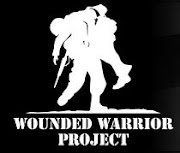In diplomacy and espionage, there is no worse mistake than "mirror-imaging," that is, ascribing to foreigners your own actions and views. For Westerners this is especially debilitating, given our modern proclivity to assume that others pursue their interests in secular, material, and guilt-ridden ways. Confession is an important part of the Western tradition; self-criticism is less acute elsewhere. Americans, the British, the Spanish, and the French have written libraries about their own imperialistic sins; Arabs, Iranians, Turks, and Russians have not. In an unsuccessful effort to reach out to Iran's clerical regime in 1999, President Bill Clinton apologized for the actions of the entire Western world. Last week, in response to President Barack Obama's let's-talk greetings broadcast to Iran, theocratic overlord Ali Khamenei, "supreme leader" of the Islamic Republic of Iran, enumerated 30 years' worth of America's dastardly deeds against the Islamic revolution--but not a peccadillo that the clerical regime had committed against any Western country.
Looking overseas, many Americans are feeling guilty. George W. Bush and his wars have embarrassed Democrats and Republicans. So the Obama administration has tried to push the "reset" button, and not just with Russia. Nowhere has this American sense of guilt been more on display than in the Middle East: Obama has picked up where Bill Clinton left off, trying to engage diplomatically Iran and Syria, and perhaps down the road the Palestinian fundamentalist movement Hamas. Yet nowhere is guilt-fueled mirror-imaging more dangerous.






No comments:
Post a Comment